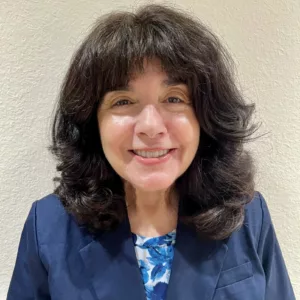Support Group Offers Comfort to Family Members with Loved Ones in Memory Care


Support Group Offers Comfort to Family Members with Loved Ones in Memory Care
When someone struggles with issues of memory loss, dementia, and the psychiatric symptoms that can accompany illness, it can affect the individual and their families as much as if they were suffering from a physical ailment like cancer or heart disease. The patients’ lives, as well as those around them, can eventually become irreparably altered as the person impacted becomes less and less self-reliant. While the person afflicted may have no choice but to put the burden of providing for their health and well-being on those they love most, they may not recognize that help is needed, further complicating their family’s attempt to be there and provide necessary assistance.
Often overlooked in this life-changing scenario is the person providing and overseeing the loving care. The primary caregiver is never “off the clock” or without worry. Others close to the patient also experience stress, worry, and fatigue. It is easy to feel alone and isolated, and it can be difficult to ask for help. At Los Angeles Jewish Health (LAJH), we provide that help and support for those caregivers.
At LAJH, we strive to support the entire family. We provide care to those who reside on campus, participate at our Brandman Centers for Senior Care (PACE program), and those who receive our care services in their homes. In addition, we are committed to helping the family members who are also providing care, love, and support. For years, we have been offering support groups led by Dr. Jennifer Watson. Prior to the COVID pandemic, the groups met in person on the Eisenberg Village Campus. Throughout COVID, at the participants’ request, they gathered by ZOOM for about an hour, two times a month. These remote meetings continue today, and the Zoom program utilized is HIPPA compliant to ensure member privacy.
One benefit of the group is that newer members learn all about Los Angeles Jewish Health from the members who have been involved longer. The more knowledgeable members share everything from details about the facilities to their experiences with the gatherings themselves. They can attend the support group for as long as it is helpful to them.
What Dr. Watson has found is that even once participants feel they no longer need to attend the organized small group meetings, many group members stay connected in their own informal ways, as they share many similar experiences and challenges that they have worked to overcome.

Dr. Watson believes that the group works well when members are encouraged to share what they are learning in their caregiving journey. She states, “It is helpful to treat members of the group as experts. They are the ones going through this journey and can share their firsthand experiences. They help each other problem-solve and also share success stories as well.”
Based on her background as a clinical psychologist and neuropsychologist, Dr. Watson shares insights about diagnosis, and supports caregiver problem solving about challenging behaviors and psychiatric symptoms, while providing caregiver coping strategies. Support group meetings encourage members to share their feelings to maximize emotional coping through the challenging time of caring for someone with memory issues. Individuals caring for someone at any stage of memory loss are welcome. Those interested can contact Dr. Watson directly at 818-317-3421 or via email at: [email protected].
About Dr. Jennifer Watson: Dr. Watson is a clinical psychologist and neuropsychologist. She currently serves as a clinical psychologist, geriatric neuropsychologist and forensic neuropsychologist conducting assessments and providing therapy to adults of all ages. In her consulting role, she completes capacity assessments of older adults and has testified in court. She also currently works as a neuropsychologist at Kaiser Permanente. LAJH sponsors this Family Support Group Program, which is made possible through the generous support of the Rosalinde and Arthur Gilbert Foundation.